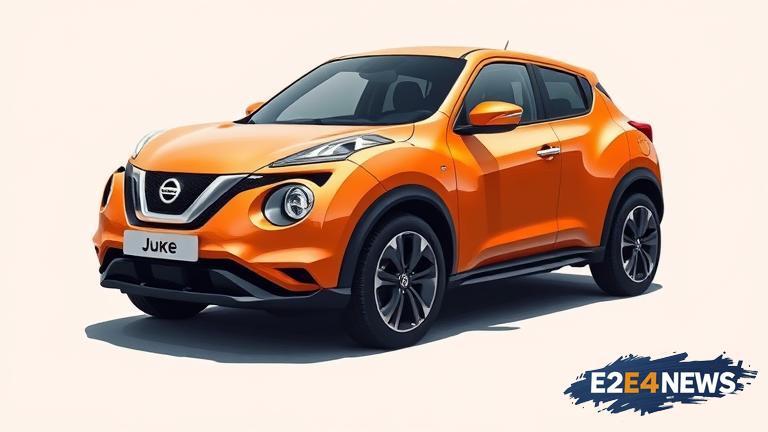The automotive industry is abuzz with the latest news from Nissan, as the Japanese manufacturer considers retaining the gas-powered version of the Juke in Europe, alongside the upcoming electric variant. This move is seen as a strategic decision to cater to the diverse needs of European customers, who may still prefer traditional internal combustion engines. The Nissan Juke has been a staple in the European market, known for its compact size, agile handling, and fuel-efficient engines. With the rise of electric vehicles, Nissan has been working on an electric version of the Juke, which is expected to debut in the near future. However, the company has not ruled out the possibility of continuing to offer the gas-powered Juke, at least in Europe. This decision would allow Nissan to appeal to a broader range of customers, including those who may not be ready to make the switch to electric vehicles. The gas-powered Juke has been a popular choice among European buyers, and its retention would ensure that Nissan remains competitive in the market. Furthermore, the company may be looking to capitalize on the existing customer base, who may be hesitant to adopt new technology. The electric Juke, on the other hand, is expected to boast impressive performance and range, making it an attractive option for those looking to transition to a more sustainable mode of transportation. Nissan has been investing heavily in its electric vehicle technology, and the Juke EV is expected to be a key player in the company’s electrification strategy. The European market has been at the forefront of the electric vehicle revolution, with many countries offering incentives and subsidies to encourage the adoption of eco-friendly vehicles. As such, the Nissan Juke EV is likely to be well-received in Europe, where customers are increasingly looking for alternatives to traditional gas-powered vehicles. However, the retention of the gas-powered Juke would also acknowledge the fact that not all customers are ready to make the switch to electric vehicles. The decision to offer both electric and gas-powered versions of the Juke would demonstrate Nissan’s commitment to providing customers with choices, rather than forcing them to adopt new technology. In addition, the company may be looking to mitigate the risks associated with the transition to electric vehicles, by retaining a traditional powertrain option. The Nissan Juke has been a successful model for the company, and its continued availability in both electric and gas-powered forms would ensure that it remains a competitive player in the European market. The Juke’s compact size and agile handling have made it a favorite among urban drivers, who value its ease of maneuverability and parking. The electric Juke is expected to build on these strengths, offering a smooth and quiet driving experience, as well as reduced operating costs. However, the gas-powered Juke would continue to offer the familiarity and range anxiety-free driving experience that many customers have come to expect from traditional vehicles. As the automotive industry continues to evolve, Nissan’s decision to offer both electric and gas-powered versions of the Juke would demonstrate its commitment to providing customers with choices, while also acknowledging the complexities of the transition to electric vehicles. The company’s strategy would be closely watched by industry observers, who would be keen to see how customers respond to the availability of both electric and gas-powered options. Ultimately, the retention of the gas-powered Juke in Europe would be a testament to Nissan’s customer-centric approach, as it seeks to provide a range of options to meet the diverse needs of its customers. The decision would also reflect the company’s commitment to innovation, as it continues to invest in electric vehicle technology, while also acknowledging the ongoing relevance of traditional powertrains. As the European market continues to evolve, Nissan’s strategy would be seen as a pragmatic response to changing customer needs, as well as a reflection of the company’s dedication to providing sustainable and innovative mobility solutions.
